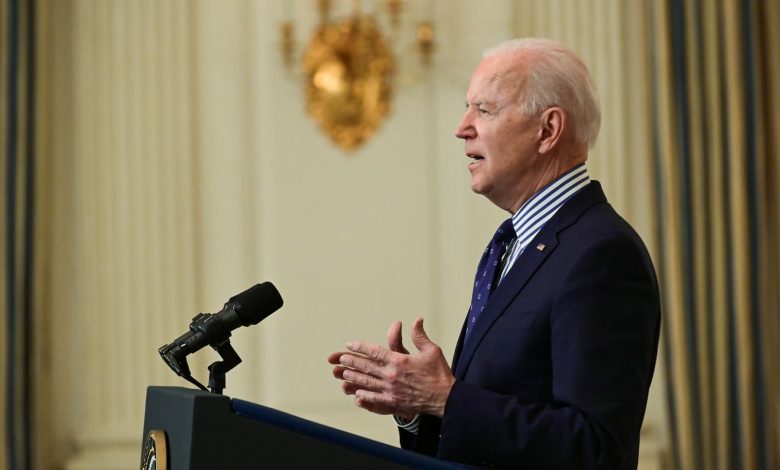
At his first news conference, Biden showed his passion for democracy — starting at home
IN HIS first news conference since entering the White House, President Biden showed the most passion not on immigration, infrastructure or even the covid-19 pandemic, but on this century’s overriding challenge: sustaining democracy against the illiberal forces that threaten it. “Your children or grandchildren are going to be doing their doctoral thesis on the issue of who succeeded, autocracy or democracy,” he declared Thursday. “That’s what’s at stake here. We’ve got to prove democracy works.”
Unfortunately, the United States itself is a battleground in this fight. The country — and, specifically, the Republican Party — does not appear to be as committed to democratic principles as it once was. Following an election in which Republicans lost the presidency and the Senate, GOP state lawmakers across the country are proposing voting restrictions that will make it harder to cast ballots, particularly for Democratic constituencies, based on lies about voter fraud.
Mr. Biden labeled it “sick” and “un-American” to ban people from taking water to those waiting in line to vote, to limit “absentee ballots under the most rigid circumstances” or to cut polling place times so that people getting off work cannot vote. These are just a few examples of the changes in the works. Others include aggressively purging voter rolls, enabling state legislatures to overturn presidential election results, limiting the funds that election officials can raise to administer elections, trashing votes accidentally cast out of precinct and giving state legislatures more direct control of election processes. “The Republican voters I know find this despicable,” Mr. Biden said.
With Republicans in total control of state government in battleground states such as Arizona, Georgia and Iowa, local Democrats have scant power to resist the onslaught. But Congress could set national voting standards for federal elections — such as requiring all states to conduct early voting, mail-in voting, automatic voter registration or nonpartisan congressional district map-drawing. House Democrats have already approved such a bill, known as H.R. 1. But the bill faces a certain filibuster in the Senate, where many Republicans oppose even what should be uncontroversial measures to make voting simpler and fairer.
So Mr. Biden argued that the filibuster, which he called a relic of the Jim Crow era, must be reformed. The president proposed forcing senators to talk on the floor to sustain their filibusters. And if that does not work, he said, “then we’ll have to go beyond what I’m talking about.” He had, he said, “an open mind” about setting aside the filibuster for “things that are just elemental to the functioning of our democracy,” such as “the right to vote.”
Democrats should not undertake filibuster reform lightly. Mr. Biden rightly encouraged Senate Democrats to start cautiously, with adjustments that may reduce the ease of obstruction in the Senate. But Mr. Biden’s plea for reform reflected a vision bigger than passing a single bill. Filibuster reform may itself show that democracy can work.
Chinese President Xi Jinping “thinks that autocracy is the wave of the future and democracy can’t function in an ever-complex world,” Mr. Biden said. Renovating and hardening the nation’s voting infrastructure and reforming the Senate so as to be more responsive to national challenges would show that the United States can respond to competition from Mr. Xi or any other despot who believes freedom is an unnecessary risk.
